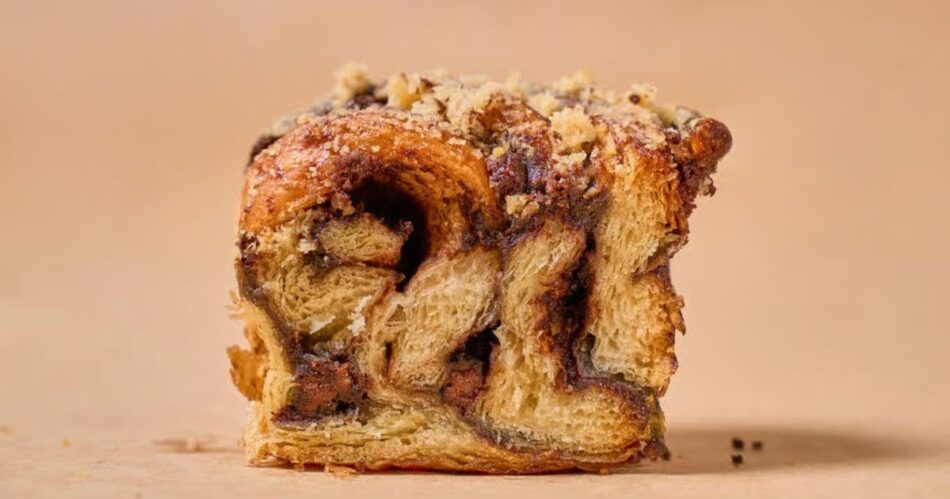The slice is thick, the chocolate glossy and layered between spirals of tender dough. It’s sweet but not too much, the cocoa smooth, the hazelnuts breaking softly with every bite. It tastes like I remember a babka should. I grew up surrounded by Jewish bakeries in Pittsburgh’s Squirrel Hill neighborhood, where loaves of chocolate babka sat behind glass, their tops lacquered with egg-wash and dusted in crumbs.
This one, though, is different. Chef Daniel Humm of Eleven Madison Park collaborated with Breads Bakery to reimagine this old-world classic. Entirely plant-based, it folds Humm’s fine-dining precision into pure comfort. It’s also for a cause: a portion of proceeds supports Rethink Food, the nonprofit that Humm co-founded to redistribute meals across New York.
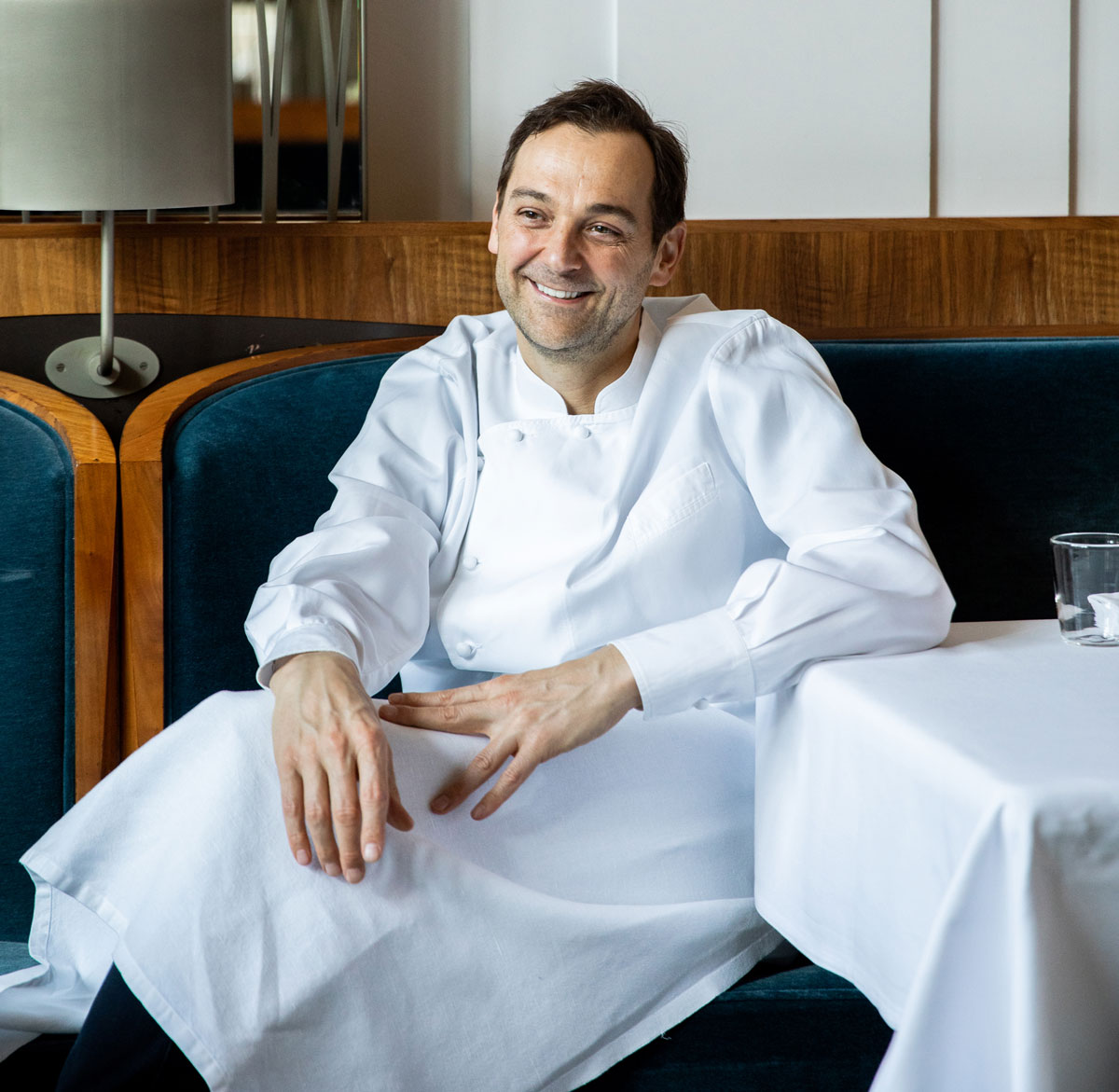 Letizia Cigliutti
Letizia Cigliutti
I picked up the loaf at Breads Bakery in Union Square before retreating to my Brooklyn Airbnb after days of nonstop rain. It sat on the counter, waiting for morning, waiting for the quiet and the coffee before my daughter woke. The wind outside bent the trees as the early fall light spilled through the window. My Los Angeles acclimated bones sensed the autumn chill from inside. It’s a perfect morning for babka and hot coffee, for watching Brooklyn locals bundled up in oversized coats as they walk their dogs past stoops lined with pumpkins. I cut another slice.
Babka on a mission
Humm’s partnership with Breads Bakery, announced in early October, marked a reunion between two New York culinary powerhouses. The bakery’s founder, Uri Scheft, perfected its now-iconic babka years ago, earning a kind of cult status among pastry loyalists. Together, the two created what they call the Rethink Babka: Breads Bakery’s first-ever plant-based version, on sale through October 20, with a portion of each purchase helping Rethink Food expand its community kitchens and reduce food insecurity.
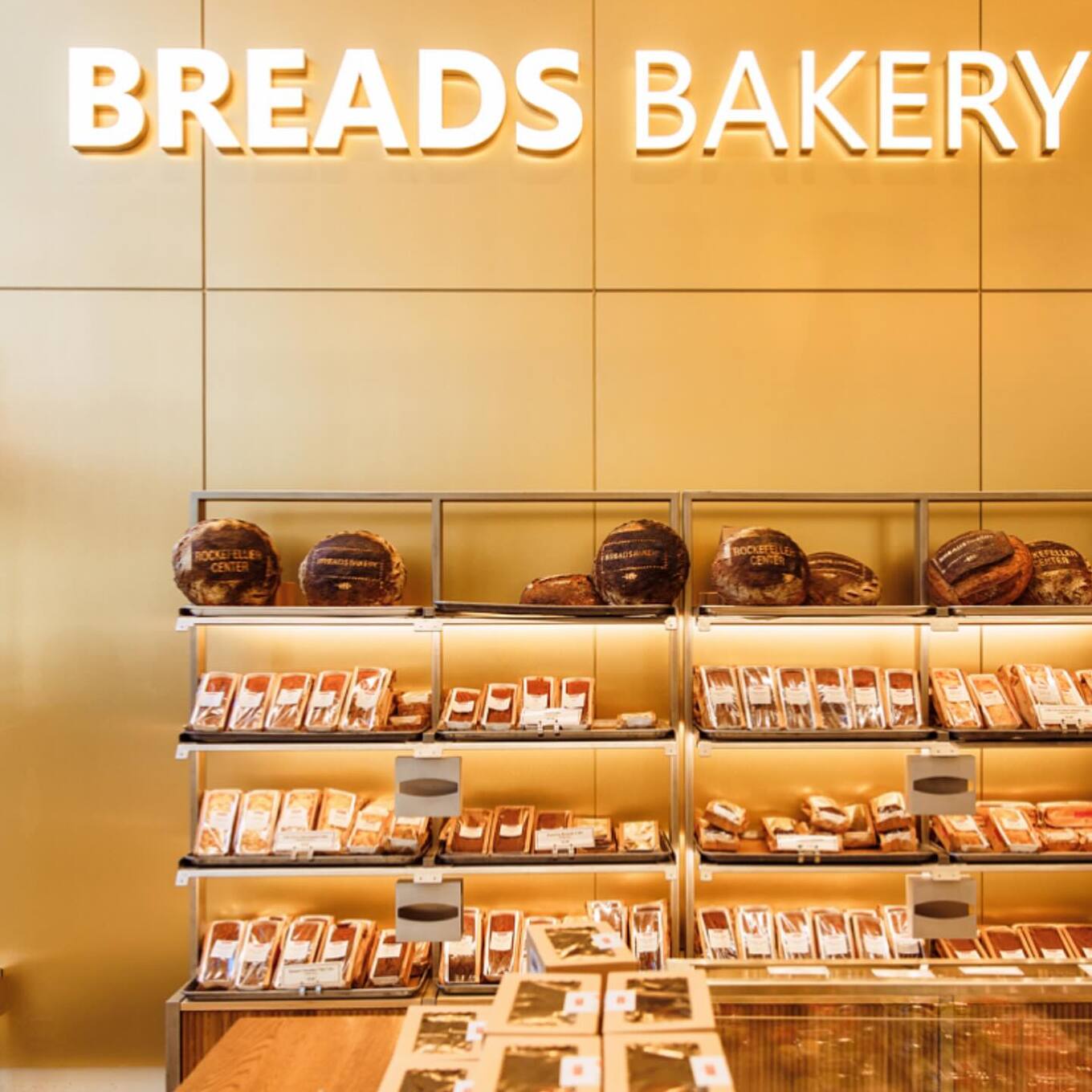 Breads Bakery
Breads Bakery
The idea feels characteristically Humm. Since transforming Eleven Madison Park into one of the world’s most acclaimed plant-forward restaurants, he’s been rethinking not just luxury dining, but the systems that feed cities. Rethink Food, founded in 2017, turns excess restaurant and grocery ingredients into meals for shelters and food pantries—a closed loop of generosity. This babka fits squarely in that philosophy: a baked good as a bridge between indulgence and impact.
It also feels like a gesture of sorts. Humm has faced harsh criticism recently. He reintroduced meat to Eleven Madison Park’s menu earlier this year, after going fully plant-based in 2021. But the criticism overlooks the fact that even in retreat, Humm is a master of plant-based technique. His work on this babka confirms it.
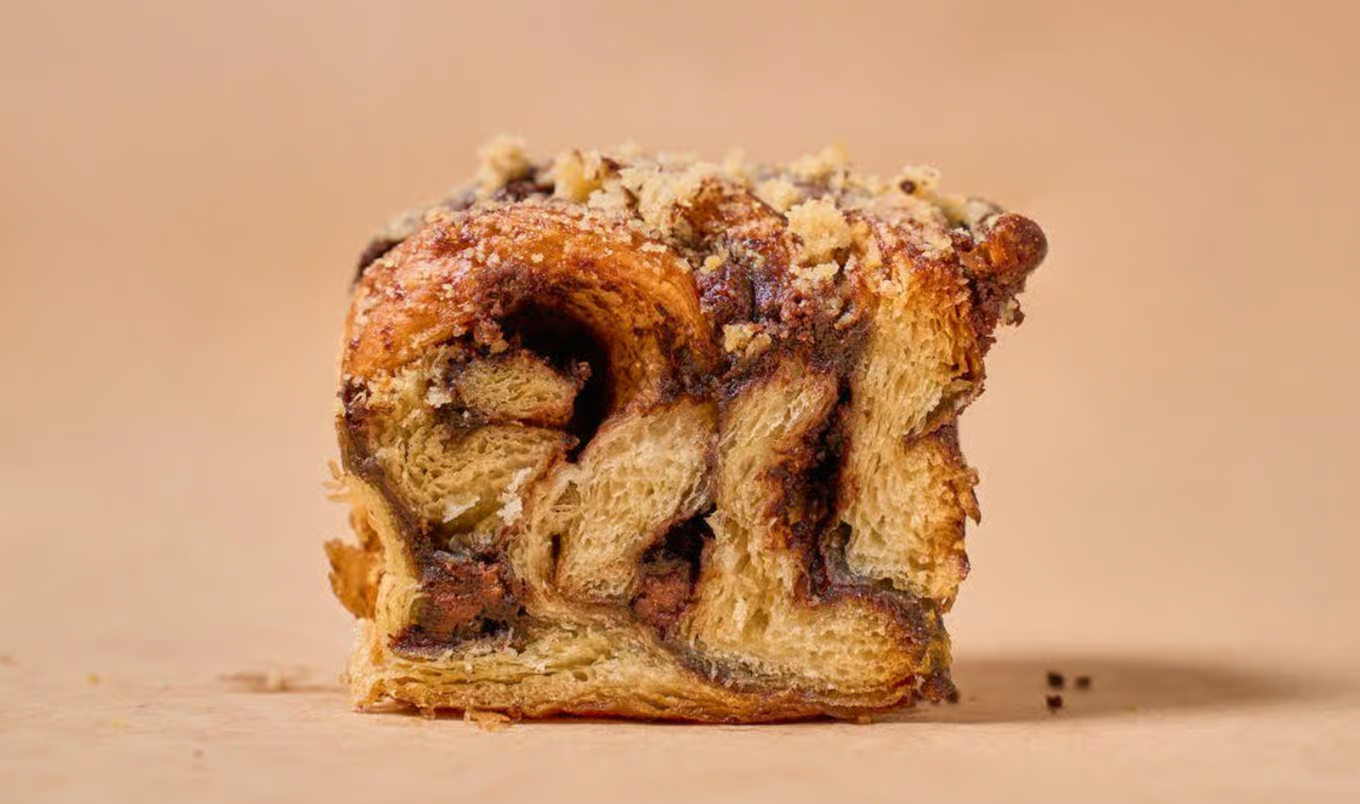 Breads Bakery
Breads Bakery
It’s a curious choice, too, this particular loaf. Babka is a pastry steeped in diaspora—a loaf braided through time and place. Its origins trace back to 19th-century Jewish communities in Eastern Europe, where home bakers twisted leftover challah dough with jam or cinnamon and baked it alongside their Sabbath bread. The chocolate iteration didn’t appear until much later, when cocoa became a staple in Jewish bakeries from Warsaw, Poland to New York. By the postwar era, it was a fixture across the city’s Jewish neighborhoods, a sweet tether for generations who’d carried their recipes across oceans.
That history, for me, isn’t theoretical. Growing up, babka wasn’t a dessert so much as a weekend constant—something to pick at with tea, to slice after temple, to eat cold from the counter. And though I didn’t know the word “diaspora” then, the feeling of cultural inheritance was baked right in. Which may be why this new version, even in its refined, vegan incarnation, feels so familiar.
The beauty in balance
There’s also the matter of Seinfeld. Babka’s most famous pop-culture cameo arrived in 1994, when Jerry and Elaine debated the hierarchy of flavors at a Manhattan bakery. “Cinnamon takes a backseat to no babka,” Jerry insisted. Elaine disagreed. Chocolate, she declared, was the superior choice. Nearly three decades later, the argument still defines how most Americans encounter the pastry—less as a religious or cultural artifact than as a New York trope, funny and endearing, endlessly parodied. You eat it for the novelty.
Humm’s babka doesn’t need a punchline, though. Its beauty is undeniable: not too rich, not too dense, but balanced. The absence of butter doesn’t read as a loss; instead, the vegan dough has a silky texture and slightly deeper color, letting the chocolate take center stage.
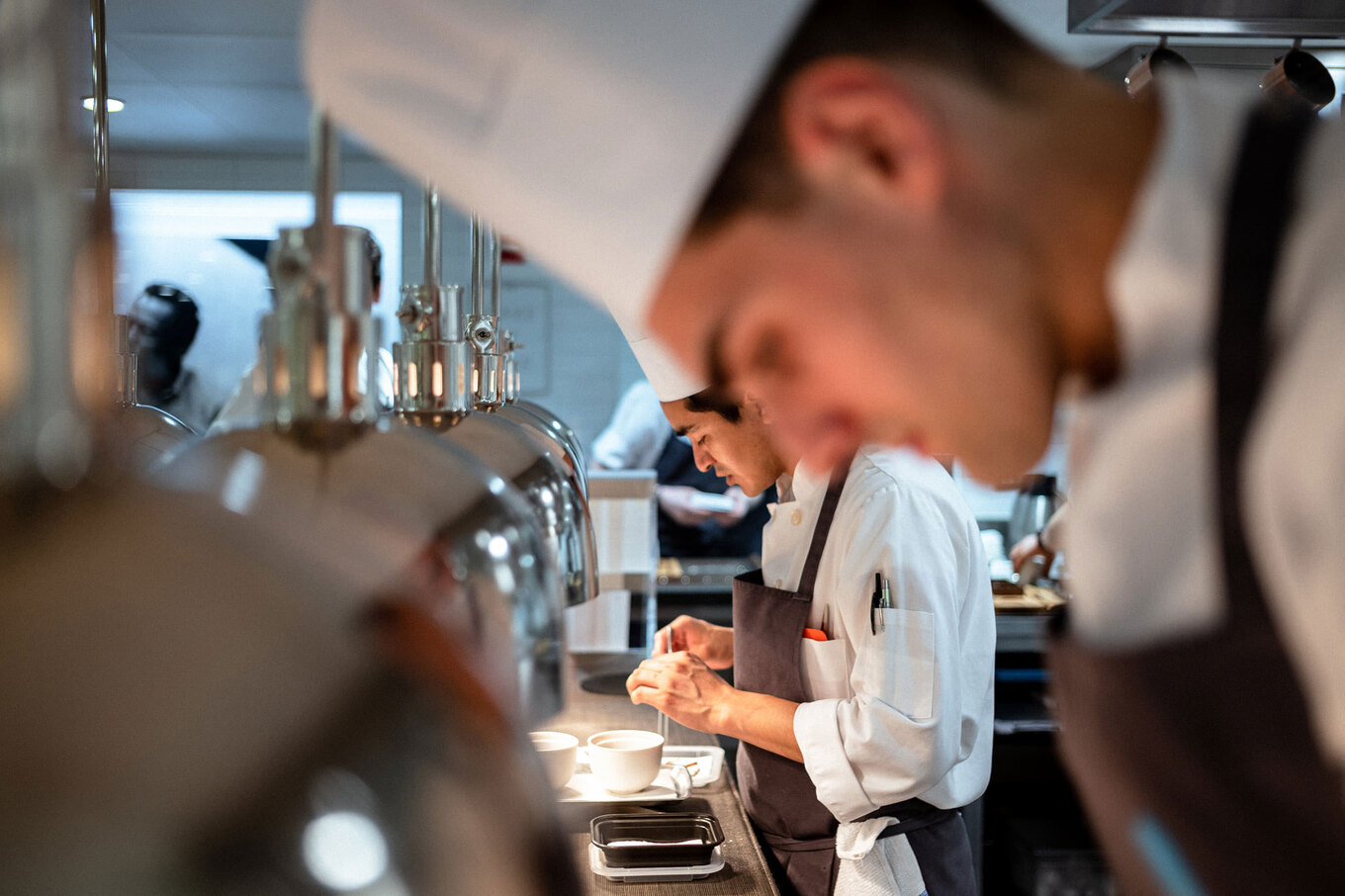 Ye Fan
Ye Fan
At Eleven Madison Park, Humm has been testing how two ideas can share a kitchen. The restaurant now moves between courses built on vegetables and those shaped by traditional technique. The babka carries that same logic. It demonstrates how opposing methods—opposing ideals, even, if we’re making his menu choice political—can coexist without dilution. They almost can’t exist without each other. The babka is a dance of chiaroscuro—the dark and the light, or in this case, the sweet and the bitter.
Humm’s babka relies on the precision of substitutions developed during his plant-based years, while the flavor honors the classic form—the history of this classic pastry. And on this blustery Brooklyn morning, nothing else will do.

